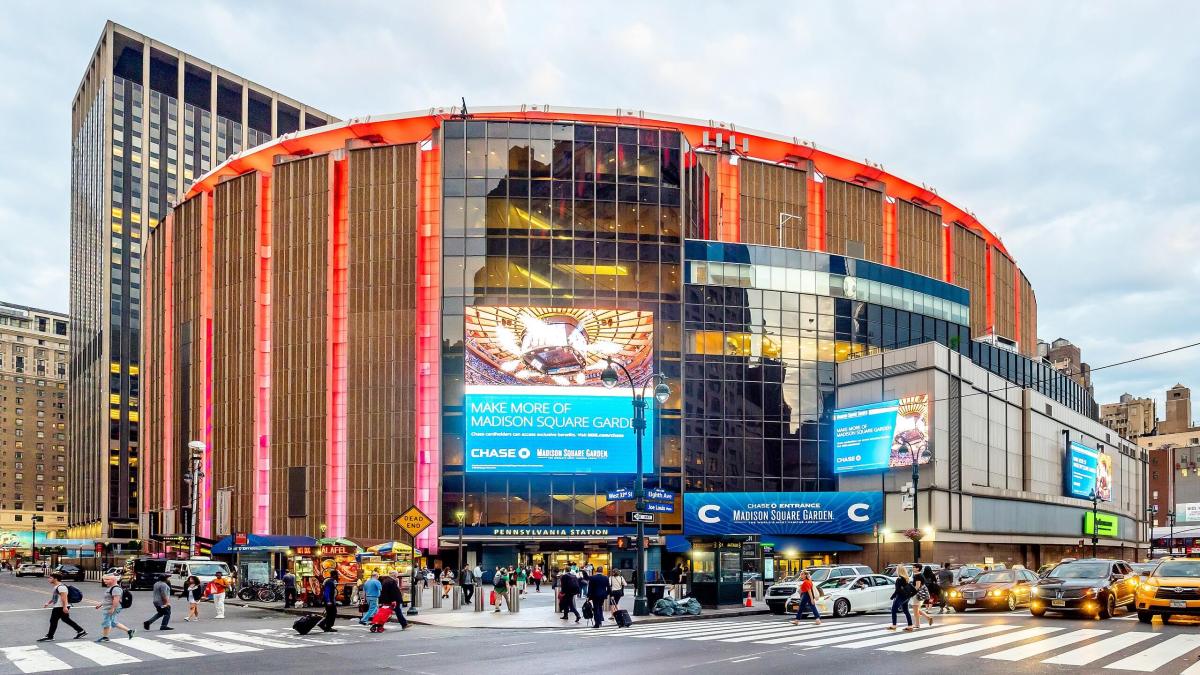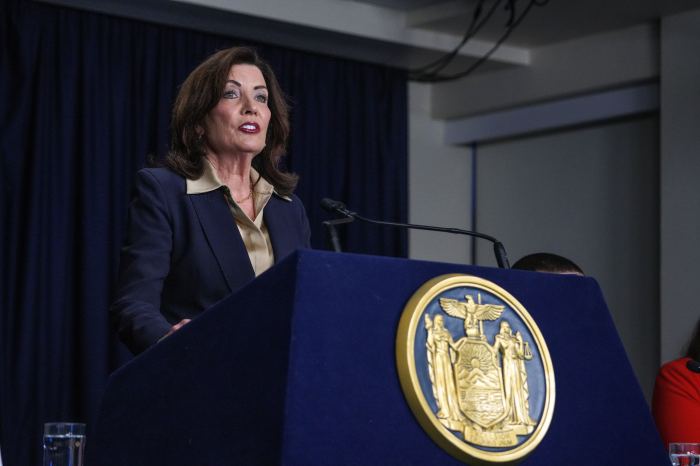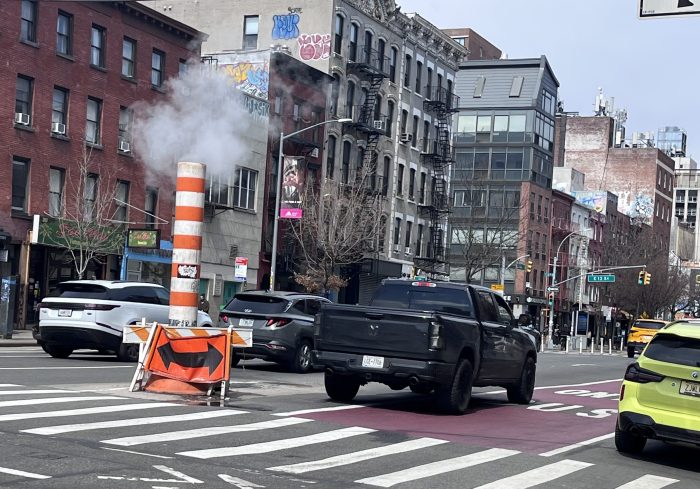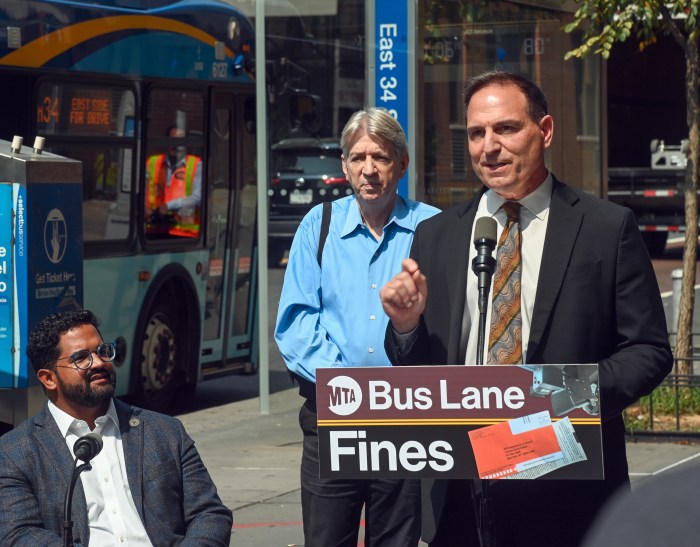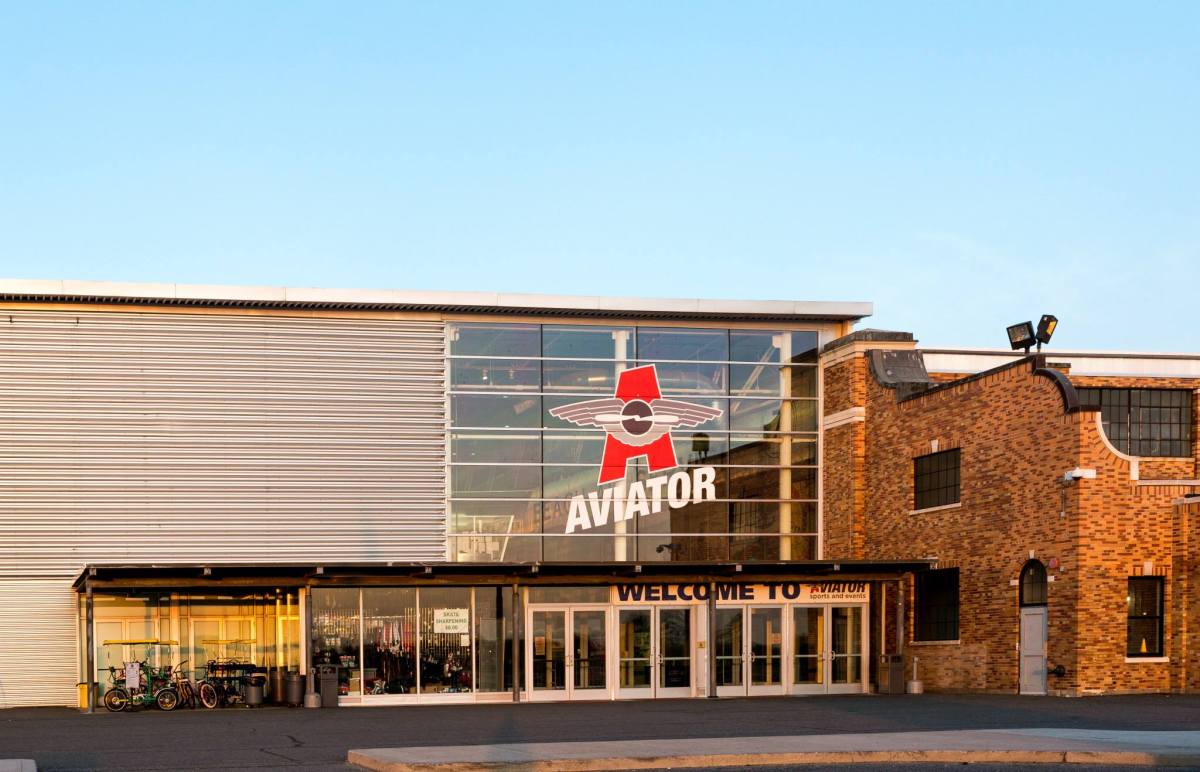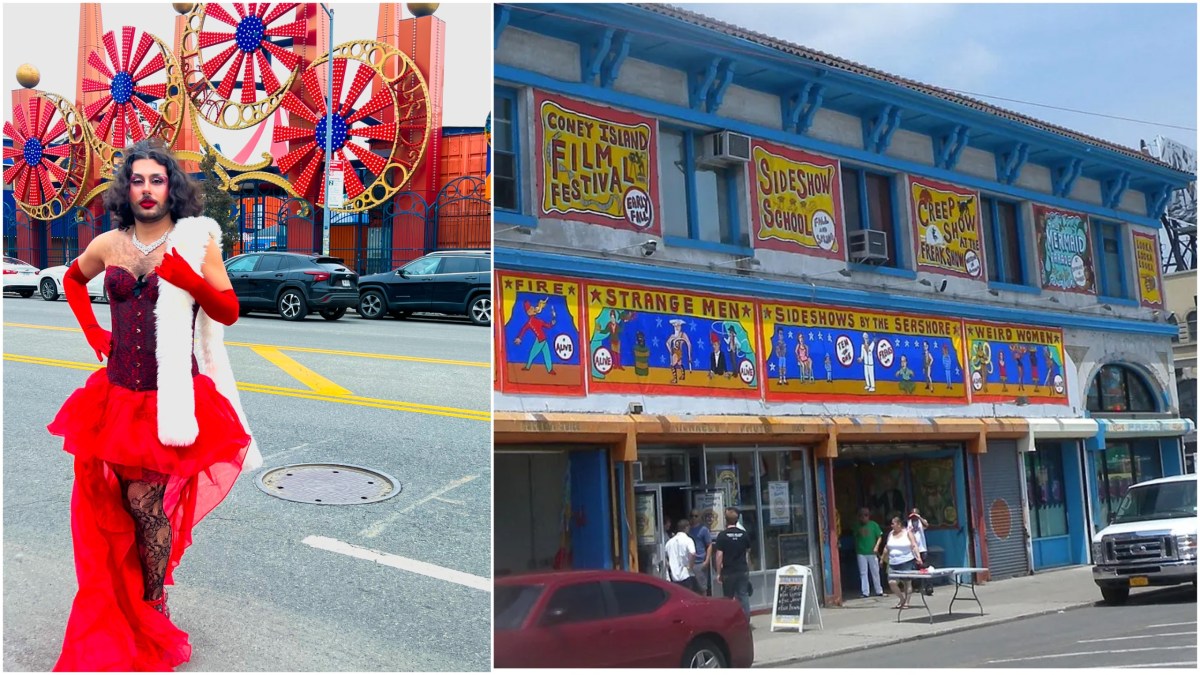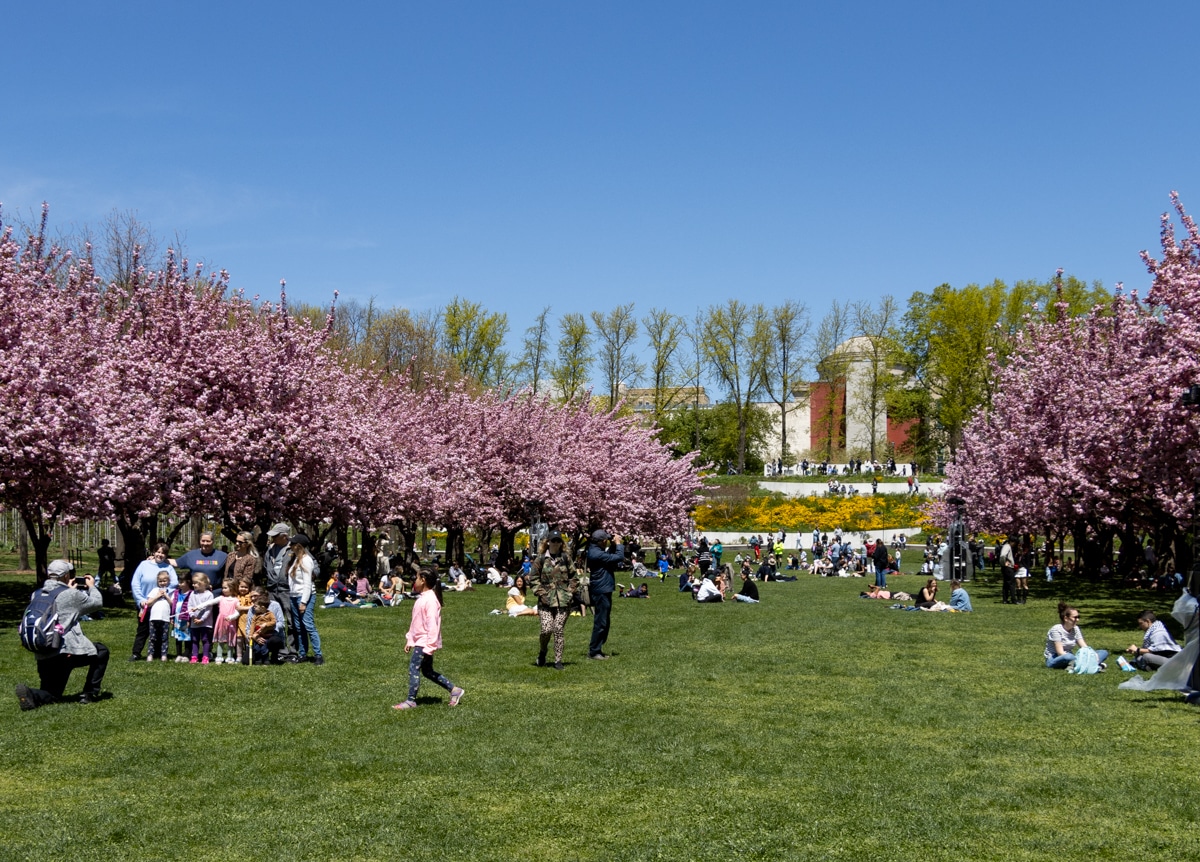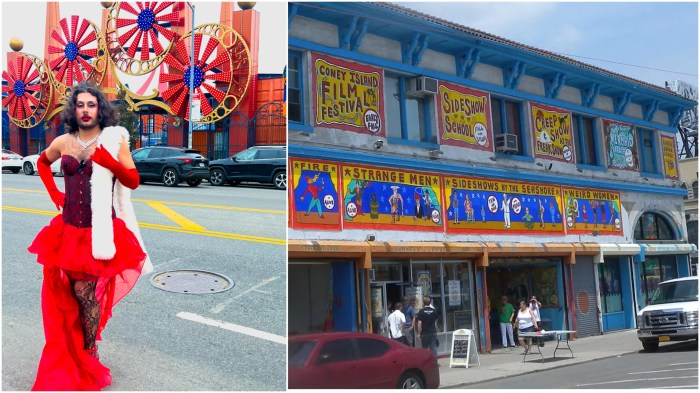The Department of City Planning has recommended extending Madison Square Garden’s special permit to operate an arena at 33rd Street and Eighth Avenue for another 10 years, on the condition the Garden commits to major public realm improvements and, crucially, returns to the city down the road to ensure the arena is compliant with plans to reconstruct Penn Station.
The proposal, which will come to a vote by the City Planning Commission this week on whether to send it to the City Council, is well short of the permanent extension sought by the World’s Most Famous Arena. But it’s also considerably longer than the three-year extension recommended by the local Community Board, which argued the arena’s presence hinders the redevelopment of Penn Station, a position tacitly adopted by the railroad agencies that use it.
The head of the City Planning Department, Dan Garodnick, said that the Garden has committed to major public space and traffic management improvements in the area around Penn Station, which is the busiest transportation facility in North America but has long been maligned as an unpleasant passenger experience not befitting New York.
The three railroad agencies that use Penn Station — the MTA, Amtrak, and New Jersey Transit — have come up with a conceptual plan to redesign the station into a larger and more open passenger terminus, and have said the Garden’s presence atop the station is not “compatible” with plans to improve Penn. The 10-year extension gives the railroad agencies time to concretize their plans for Penn Station, but also requires MSG immediately move to make public realm improvements.
“We know that there are a number of plans being considered,” said Garodnick. “But it is City Planning’s view that New Yorkers cannot wait for those plans for Penn Station to be finalized in order to benefit from these significant improvements to the area around MSG.”
The extension requires MSG to construct various public space improvements around the arena over the next two years, including planters and seating at the blocks’ corners, a “3D lenticular art wall” along a currently barren stretch of Eighth Avenue, and new grand entrances to Penn Station at its Eighth Avenue corners.
MSG can also no longer allow trucks to stage on 33rd Street, must hire flaggers to make loading more efficient, and submit a “Transportation Management Plan” to the city’s Department of Transportation, which would potentially include measures to decarbonize its deliveries and move loading to off-hours.
Furthermore, the Garden — home of the Knicks and Rangers, and America’s highest-grossing concert venue — must return to the City Planning Commission once the railroad agencies have developed 30% of their design plan for Penn Station to ensure the Garden is still compatible with that plan. If it’s found not to be compliant, the city could rescind the permit.
A rep for MSG was tightlipped regarding its position toward the proposal when reached by amNewYork Metro.
“We appreciate the recommendation from the City Planning Commission and look forward to collaborating with all key stakeholders on improving Penn Station,” said the spokesperson for MSG Entertainment.
The Madison Square Garden Company split its assets into independent entertainment and sports companies in 2020, though James Dolan remains the majority owner of both.
In a letter to the commission, the company contended that its commitments to the city do not involve land or money transfers.
The Garden has not formally expressed a preference between the railroads’ conceptual Penn plan and a rival plan by Italian engineering firm ASTM, though it did note that the latter plan avoids issues related to loading and air conditioning posed by the former. The MTA, meanwhile, has lambasted the ASTM plan as a giveaway to the Garden, since it would involve a public acquisition of the Hulu Theatre so it could be demolished to make room for a grand train hall.
Governor Kathy Hochul declared last month that the redesign of Penn Station would go forward with or without an accompanying land development scheme by Vornado Realty Trust, which was originally supposed to help finance station reconstruction. The process is still in its amniotic stage and no final design decisions have been made. The original Vornado plan would have involved the demolition of numerous buildings in the area around Penn Station and was highly controversial among neighborhood residents.
One of the most prominent critics of the Vornado plan was Layla Law-Gisiko, the land use chair at Community Board 5, which recommended extending the special permit for three years on the condition the Garden would move afterwards. On Monday, Law-Gisiko was critical of DCP’s proposed 10-year extension.
“Ten years is too long,” Law-Gisiko told amNewYork Metro. “Granting a 10-year special permit to MSG completely disregards the planning needs and opportunities at Penn Station and undermines the ability to compel a permanent solution that prioritizes transit.”
The permit is expected to go before the City Council this month, where Law-Gisiko hopes the 10-year extension might get whittled down. That could depend on the position of Council Member Erik Bottcher, given the Council’s tradition of deferring to the local lawmaker’s position.
Last year, Bottcher publicly floated making the Garden move from its spot. His office did not return a request for comment for this article. The mayor’s office declined to comment.
This story was updated on July 10, 2023 with comment from Madison Square Garden.
Read more: $6B Proposal to Redesign Penn Station for Better Transit Experience



